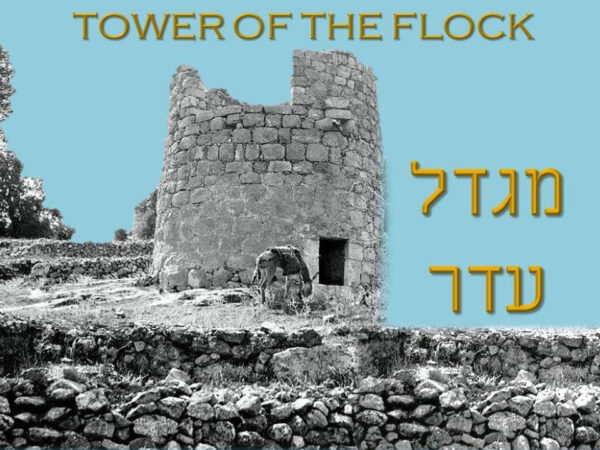The Birthplace at Migdal Eder
Let’s look at the book of Luke to see a specific place within Bethlehem where the Messiah was born. While today we are not very familiar with that place, the Jews of the first century and before knew it very well and expected to see the Messiah right there.
Now there were in the same country shepherds living out in the fields, keeping watch over their flock by night. And behold, an angel of the Lord stood before them, and the glory of the Lord shone around them, and they were greatly afraid. Luke 2:8-9
The first question we ask is what shepherds were doing in the land of Israel near Bethlehem, not far from Jerusalem. The Jewish oral law, the Mishnah, prohibited shepherds from keeping flocks in much of the land of Israel because of its negative effects on agriculture. Shepherds were given selected areas, far from the cities, in mostly uninhabited regions. So what were they doing there in between Jerusalem and Bethlehem?
“They do not rear small cattle in the Land of Israel, but they do rear them in Syria and in the wastelands which are in the Land of Israel.” m.B. Qamma 7:7 A-B
These shepherds and their flock were of a special kind. because they continually needed animals for sacrifices at the Temple. So they selected an area not far from Jerusalem, in the region of Bethlehem, where they would keep the flock. This we learn from the Mishnah, which says: “Cattle found between Jerusalem and Migdal Eder…if male, they are deemed to be burnt offerings; if female, they are deemed to be peace offerings.” M.Seqal. 7:4A
So the very place where they were keeping the flock for sacrifices for the Temple worship, may have been the very place in Bethlehem where Yeshua was born. Remember, there was no room at the inns. Joseph had to find a manger, and the only ones available were in the same area where the shepherds kept their flock.
Salvation Has Arrived
This is so powerfully symbolic, but it is far from being the whole story. Did you notice the name Migdal Eder that the Mishnah uses?
This term also has a long trail of Messianic prophecies behind it. This title is translated in our Bible as the Tower of the Flock. While this place is mentioned many times in Jewish writings, it is used only two times in the Hebrew Scriptures, which commentators relate to the birth of the Messiah. The first one is found in Micah 4:8 which says: “As for you, Tower of the Flock, Migdal Eder, Hill of the daughter of Zion, , To you it will come— Even the former dominion will come, The kingdom of the daughter of Jerusalem.
Micah says that from this place, Migdal Eder, will arise the salvation from Israel and the Davidic Kingdom. That is how the rabbis of old understood this verse, so much so that the Targum of Micah translates this verse by saying: And you, O Messiah of Israel, וְאַת מְשִיחָא דְיִשרָאֵל who have been hidden away because of the sins of the congregation of Zion, the kingdom shall come to you, and the former dominion shall be restored to the kingdom of the congregation of Jerusalem. Here we are told that the Messiah of Israel, who was hidden because of the sins of Israel, will first appear in Migdal Eder (the tower of Eder). It is where the shepherds were to go witness the birth of Yeshua.
The first time we find the words Migdal Eder in the Hebrew Scriptures is also powerful. It is mentioned in Genesis 35:21 where we are told that Jacob went to that place. It was after Rachel died while giving birth to Benjamin. See how the Targum of Jerusalem translates this verse: Jacob journeyed on and pitched his tent beyond the Tower of the Flock, Migdal-Eder, the place from which the King Messiah will reveal himself at the end of days. That is how this place was considered. Right where the animals reserved for sacrifices were being raised, they believed the Messiah would first appear. Indeed, it is where it was first announced concerning His birth in Bethlehem of Judea. That is where Luke brings us. This knowledge was not hidden from them since it is right in their Targumim, the Aramaic Bibles they used every sabbath at the synagogue.
Along with the magi, this testified that the Messiah had indeed come to Israel.
